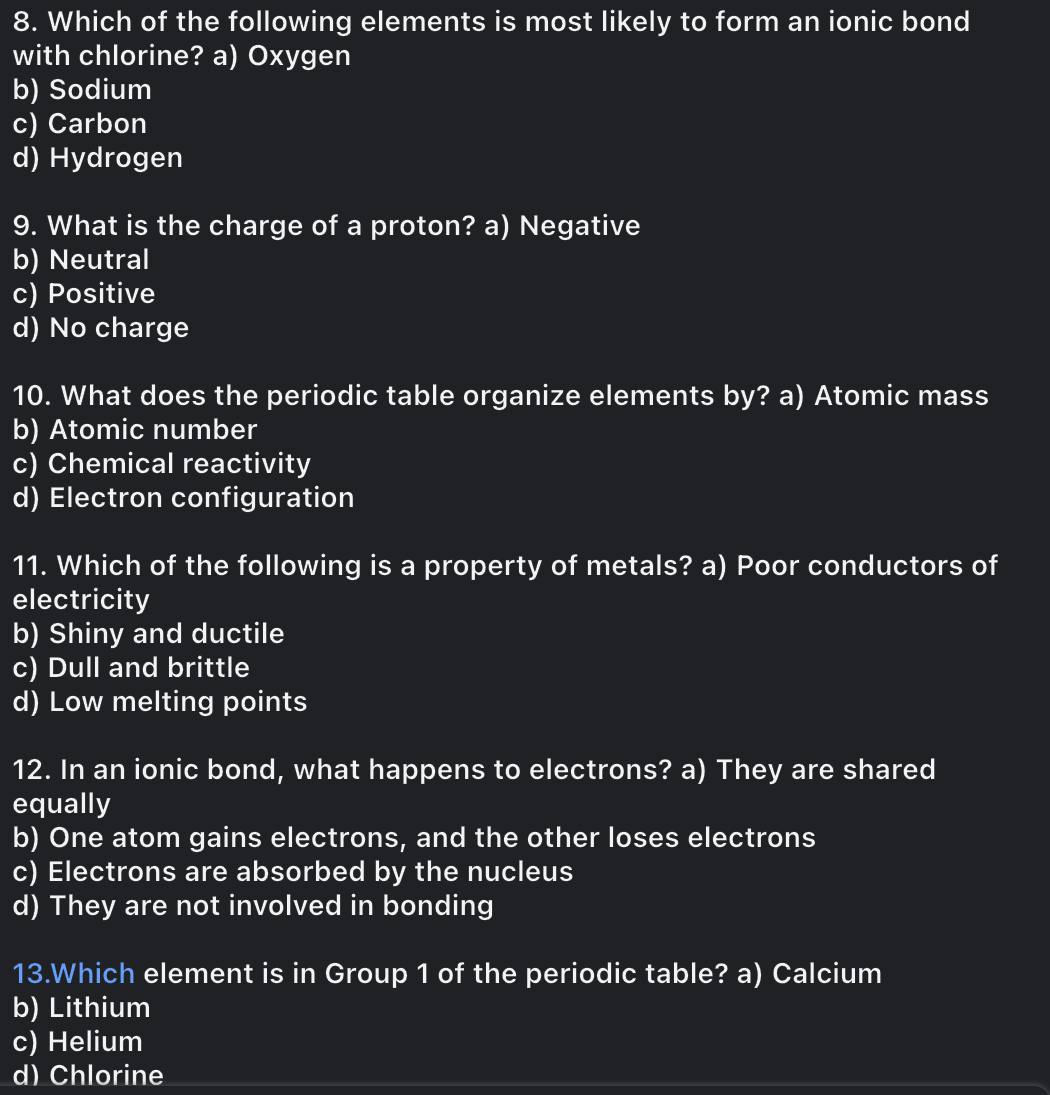Which of the following elements is most likely to form an ionic bond with chlorine?

Understand the Problem
The image contains multiple-choice questions related to chemistry. The questions cover topics such as ionic bonding, the properties of protons, organization of the periodic table, properties of metals, and ionic bonds. We need to extract each question individually and classify them appropriately.
Answer
Sodium is most likely to form an ionic bond with chlorine.
The final answer is b) Sodium
Answer for screen readers
The final answer is b) Sodium
More Information
Ionic bonds form between elements with large differences in electronegativity, typically between metals and nonmetals. Sodium (Na) is a metal, and chlorine (Cl) is a nonmetal, making them likely to form an ionic bond.
Tips
A common mistake is confusing ionic bonds with covalent bonds. Ionic bonds involve the transfer of electrons, while covalent bonds involve the sharing of electrons.
Sources
AI-generated content may contain errors. Please verify critical information